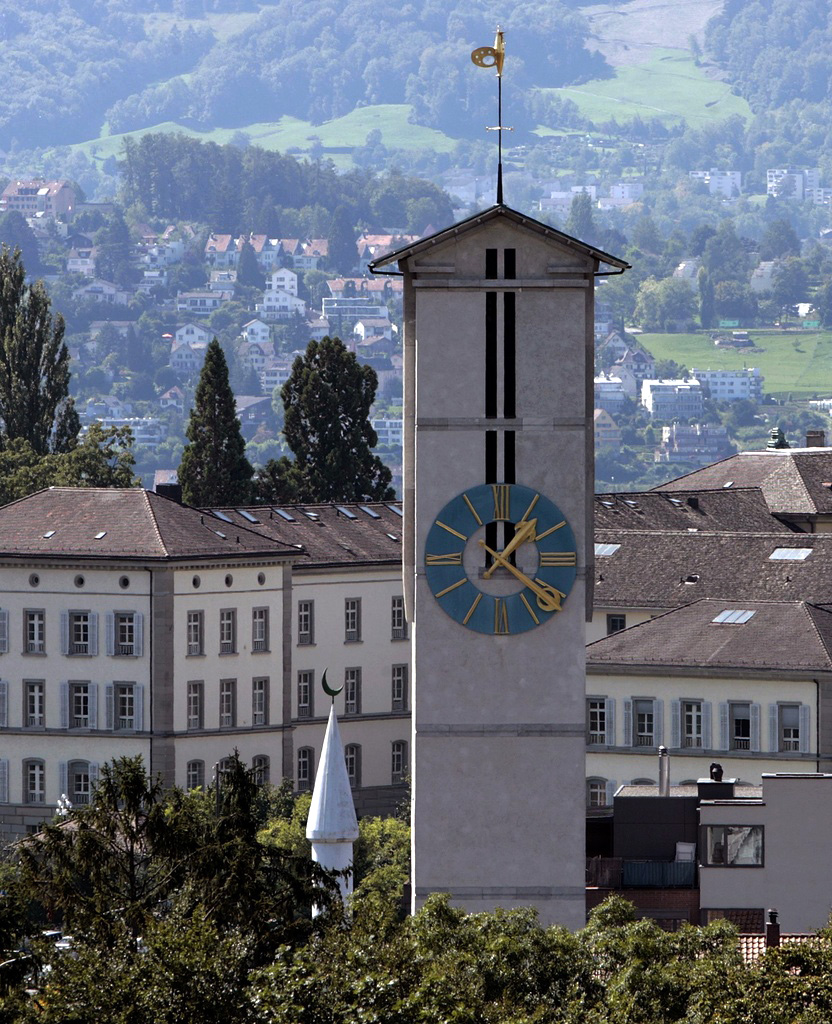
Dialogue on Islam in Switzerland gains momentum

Switzerland is promoting dialogue with the Muslim world as it comes to terms with the electorate’s decision six months ago to ban the construction of new minarets.
For many people, November 29, 2009 came as a shock, when a majority of voters accepted the new legislation, and the vote has been seen as a “wake-up” call.
“People are beginning to speak about Islam in Switzerland, which wasn’t really the case before,” said Saïda Keller-Messahli, president of the Forum for a Progressive Islam.
“Even if I don’t agree with the result, which damages religious freedom, this vote showed the existence of a large uneasiness about Islam and a series of false images about the religion and those who believe in it.”
“It has encouraged debate and has, through the media, provoked discussion on problem issues.”
Political scientist Ahmed Benani from Lausanne shares this view. “The importance of Islam in Switzerland has been a discovery for a majority of citizens who are wondering how to live together with those who now form the second-largest religion in the country.”
Sceptical
Stéphane Lathion of the Islam in Switzerland Research Group is sceptical.
“I am not sure that this awareness exists all over Switzerland. We continue to be emotional. There really is no thought about the reality experienced by Muslims in Switzerland, whether it be on the part of the authorities or political parties. We need a debate that goes to the heart of the matter.”
That’s precisely what Justice Minister Eveline Widmer-Schlumpf has been trying to encourage with a consultation process begun by her predecessor Christoph Blocher in 2007.
“The continuation of consultation is positive, all the more since nothing like this happened before. Even if security concerns are the motive for this process, it’s telling many Muslims that they have to say what Islam [really] is,” said Benani.
Keller-Messahli claims that those taking part in the debate at present do not represent the majority of Muslims in Switzerland.
“Islamic associations represent only about 15 per cent of the Muslim population in Switzerland. But the big silent and liberal majority of this population is not organised. The authorities therefore do not know who to talk to other than representatives of the Islamic organisations.”
Critical voices
Keller-Messahli says her association represents some of the critical voices. “The problem is that the silent majority does not want to lay itself open.”
“The very different ways of Muslims are difficult for the authorities to cope with. But they can be very rewarding. Islam is not a monolith.”
She also points out that many Muslims in Switzerland voted in favour of the ban on the construction of new minarets in Switzerland.
As she puts it, they are against the way that mosques are run in Switzerland or against discrimination against women.
Lathion says all sides are if not on the defensive then on the attack. “From both sides, fear and distrust seem to rule.”
He has another way of seeing things. “Rather than talking about Islam, let’s talk about Muslims who have concerns about education, elderly people, the health system etc. Let’s stop putting religion where it does not belong.”
Frédéric Burnand in Geneva, swissinfo.ch (Adapted from French by Robert Brookes)
This article is the third in a series of three examining the situation six months after the nationwide vote on November 29, 2009 banning the construction of new minarets in Switzerland.
There are an estimated 350,000 Muslims in Switzerland (2008 figures). Their numbers nearly doubled in the 1990s.
Around 10% of Muslims have Swiss citizenship.
Muslims made up 4.3% of the Swiss population according to figures of the 2000 census. Islam is the third-largest religion in Switzerland behind Catholics and Protestants.
Around 56% of Muslims in Switzerland immigrated from southeastern Europe, mainly from Albania and Bosnia. A further 20% come from Turkey, 4% from North African countries, 3% from Lebanon and the rest from sub-Saharan Africa.
There are 180 Muslim prayer rooms in Switzerland. Four mosques have a minaret: Geneva; Zurich, Winterthur and Wangen near Olten.

In compliance with the JTI standards
More: SWI swissinfo.ch certified by the Journalism Trust Initiative
















![The four-metre-long painting "Sonntag der Bergbauern" [Sunday of the Mountain Farmers, 1923-24/26] had to be removed by a crane from the German Chancellery in Berlin for the exhibition in Bern.](https://www.swissinfo.ch/content/wp-content/uploads/sites/13/2025/12/01_Pressebild_KirchnerxKirchner.jpg?ver=bb19e376)















You can find an overview of ongoing debates with our journalists here . Please join us!
If you want to start a conversation about a topic raised in this article or want to report factual errors, email us at english@swissinfo.ch.